Seconded By: Tim Smith,
It’s All In My Head is an ongoing, research-based multimedia project that explores the coping mechanisms of survivors of terrorism and extreme instances of conflict and cruelty in Nigeria.
The project combines research, dialogues, and the fusion of layered portraits, video and written narratives to craft installations that look into the impact of these events on survivors’ mental health and well-being.
This lifelong chapter-based project advocates for increased and long-term access to psychosocial support for the survivors, which in turn will improve their mental health and well-being.
Nigeria is Africa’s most populous country. It is a multi-ethnic and multi-religious state that constantly grapples with varying degrees of acts of cruelty, terrorism and violent conflict. Sadly, innocent Nigerian citizens (including children) are often the most impacted by these aforementioned atrocities.
On a yearly basis, the number of victims and survivors of these atrocities keeps increasing. Oftentimes, the first responders to the survivors, which are primarily humanitarian organizations and government agencies, focus on providing temporary shelter and relief materials and setting up makeshift clinics. While these interventions are necessary, very little priority is placed on assessing the mental health of survivors and the resulting trauma experienced from such horrific events.
Since 2018, I have worked with more than eighty survivors of the aforementioned tragedies in different parts of Nigeria. It is interesting to note that while these survivors find a way to navigate their current realities as well as process their experiences, many of them never get to talk about their experiences and its impact on their mental health. Thus, the idea of “moving on” can be considered a charade of sorts, as they are often in reality stuck in the past while trying to start over.
A lot of the survivors live in fear even as they struggle with depression, PTSD, and vengeful thoughts, while others have found solace in their existence and religion.
With all this in mind, I started “It’s All In My Head” to draw the attention of society to the state of mind of some of these survivors.
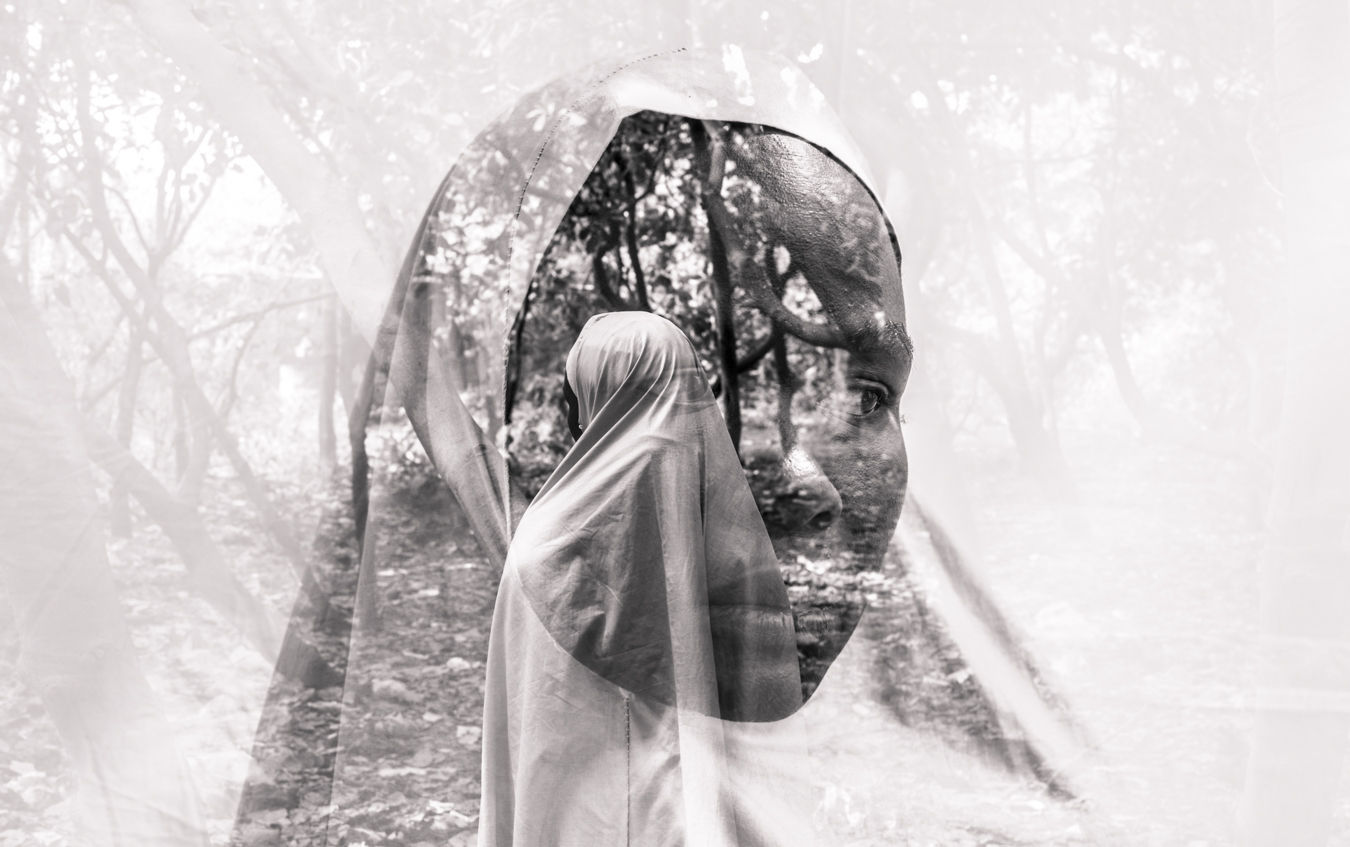
Hajara Abubakar from the series It's All in My Head 2018
“In 2017, I left Borno for Abuja. Before then, I lived in the same village with Boko Haram fighters for months.
When I wake up in the morning and just before I go to bed I think of all that happened. There was a time I stayed without food for 15 days because I was hiding, I also saw lots of dead bodies.
I went through hell and I can’t get it out of my head. Boko Haram is the worst thing that happened to me.”
Hajara Abubakar, 24, Borno, Nigeria
Boko Haram is a Jihadist terrorist group which was founded in 2002 in Borno, a state in the northern part of Nigeria.
Boko Haram attacks in and outside Nigeria have left no fewer than 20,000 people dead and at least 1.8 million people have been displaced as a result of the ongoing attacks.
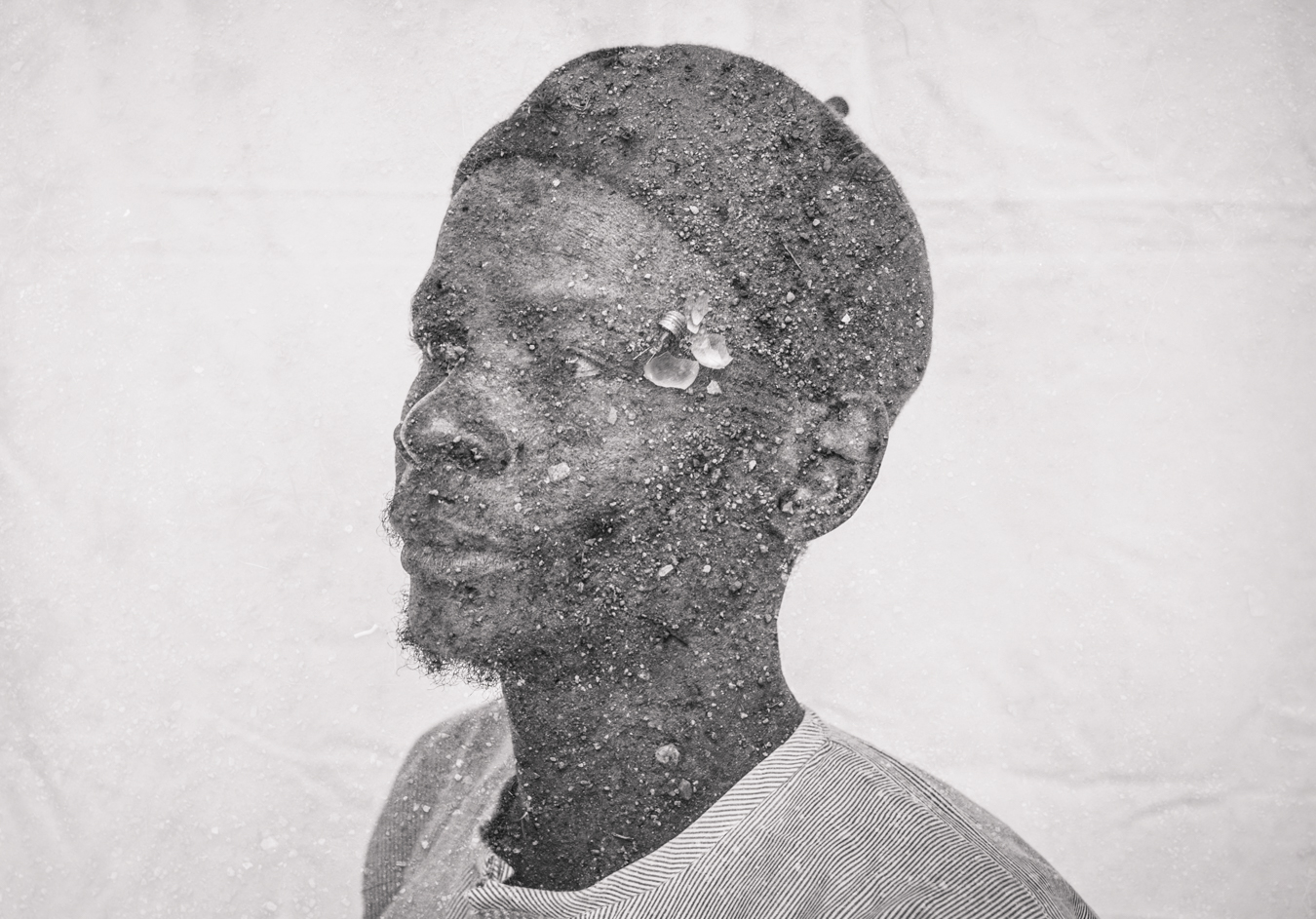
Umaru Adamu from the series It's All in My Head 2019
“Food was never an issue when I was in Borno. I was a farmer; with my harvest I will store food that will be enough for me and my family for a year and then I sell off what is left.
Since I started living at the IDP camp in Abuja, it has been tough. I live like a beggar. I can barely take care of my family. I long to return home but I can’t, the security situation has not really improved.
To be honest I’ve not been genuinely happy in a long time. I am still trying to adjust and accept all that happened, but it’s really not easy.”
Umaru Adamu, 57, Borno, Nigeria
Boko Haram is a Jihadist terrorist group which was founded in 2002 in Borno, a state in the northern part of Nigeria.
Boko Haram attacks in and outside Nigeria have left no fewer than 20,000 people dead and at least 1.8 million people have been displaced as a result of the ongoing attacks.
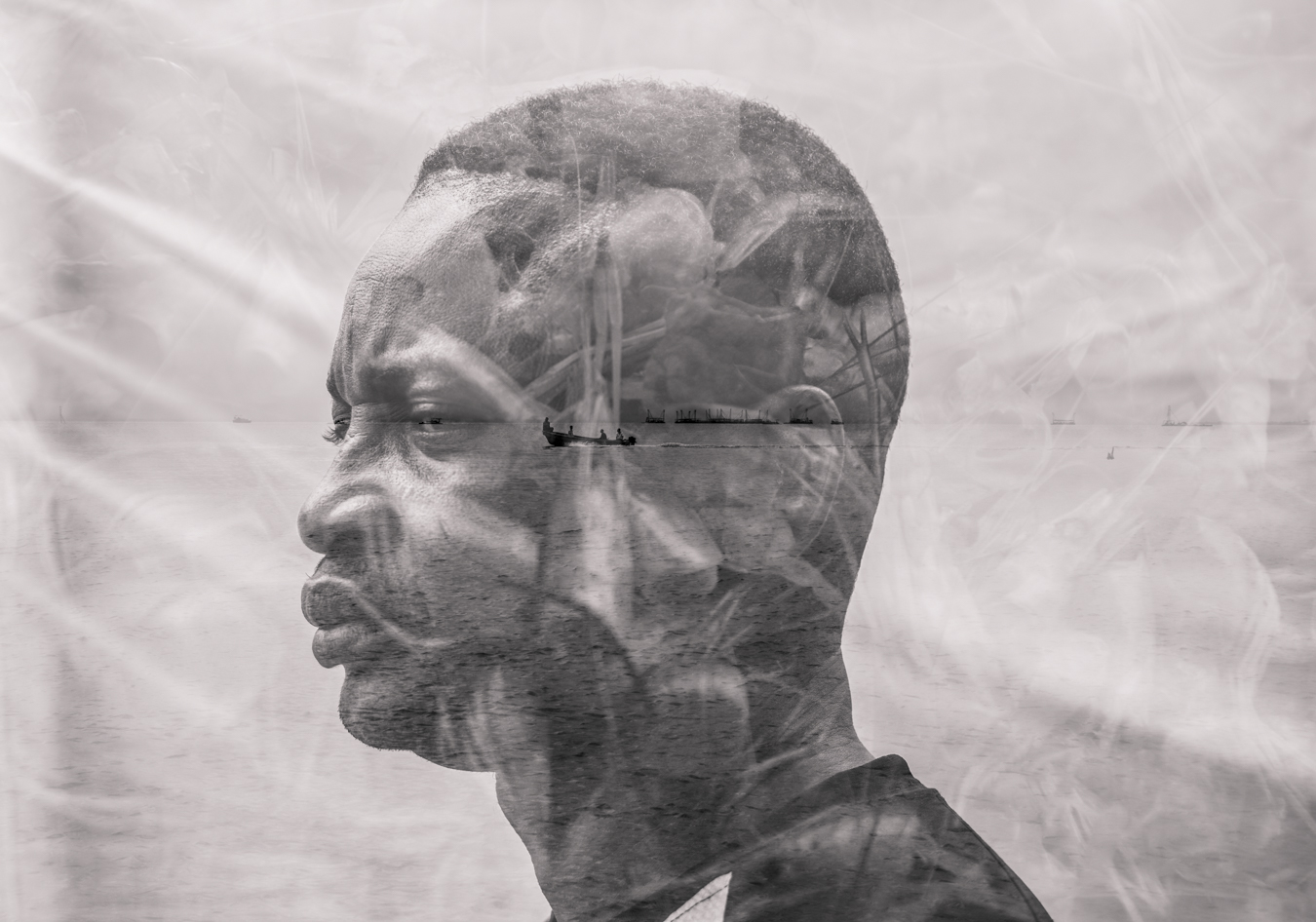
Jimoh Boton from the series It's All in My Head, 2018
“I went to fish and when I returned I saw thick smoke; I saw that my house had been burnt.
Four of my kids suffered burns. I took them to the hospital and they stayed there for a month. My wife’s shop was also not spared; all her goods were burnt.
I was a successful fisherman and all that changed in one
day.
I’m not happy at all, sometimes I pray for death. I can barely take care of myself nor my children. I lost everything I had, I’m not
happy”.
Jimoh Boton, 35, Lagos, Nigeria
In November 2016, some Egun people who are a minority ethnic group among
the Yorubas were forced to flee their homes when some Yoruba elite backed by
the government forcefully took over their land in Otodo Gbame Lagos.
What started out as a fracas escalated to a land grabbing conflict that led to the
death of at least 11 children of whom mostly drowned.
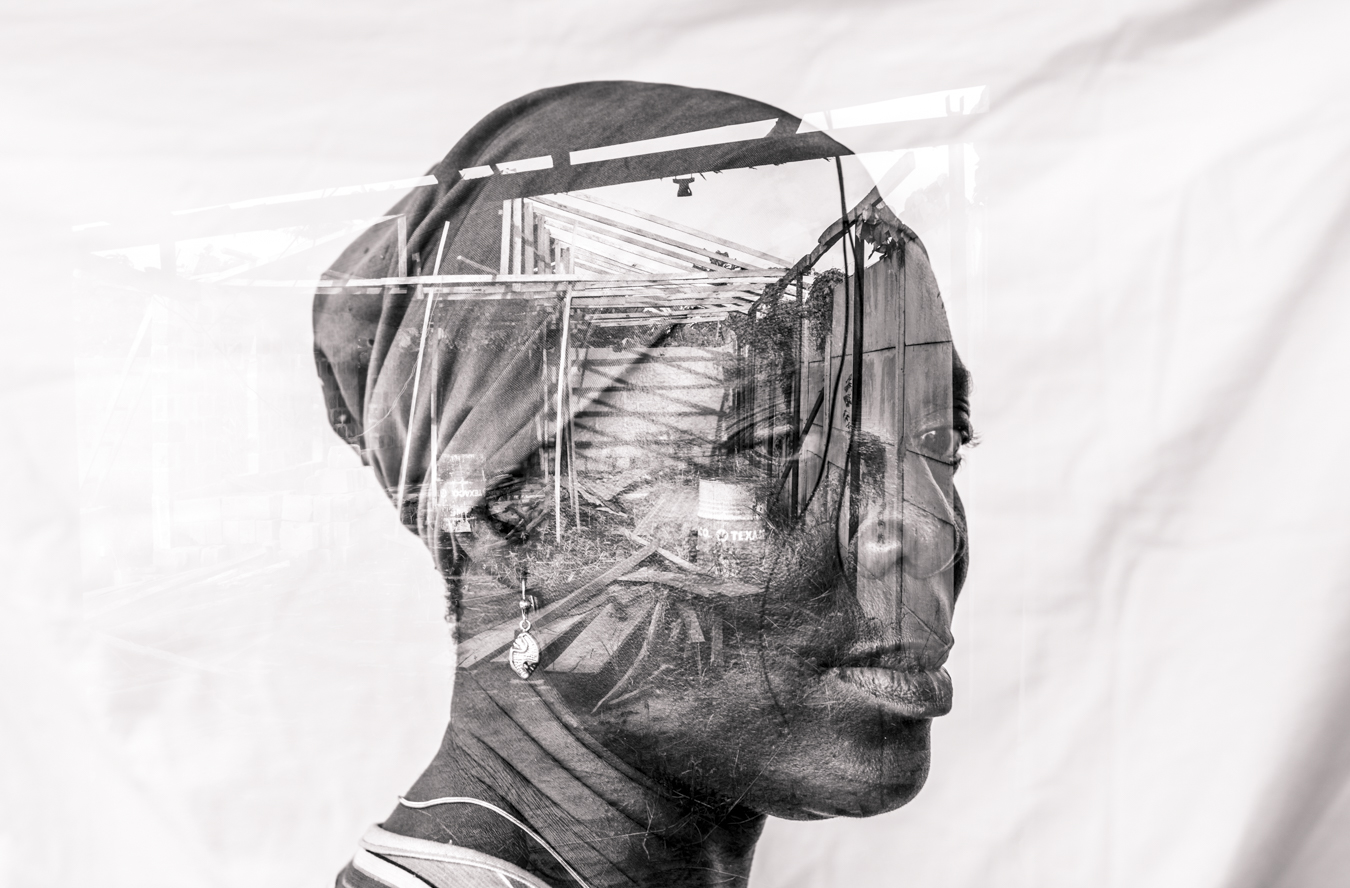
Janet Apotinpe from the series It's All in My Head, 2018
“They took us by surprise. No one saw it coming, but when they did we had to flee. My family and I had to sleep on the water in our boat for a few days.
Life was good, I had just purchased land which I was about to start developing, I also had a big shop which was doing well, sales were great, but all that was taken from me.
Now, I have close to nothing. When I think of all I lost, I cry. I have never been the same.”
Janet Apotinpe, 48, Lagos, Nigeria
In November 2016, some Egun people who are a minority ethnic group among the Yorubas were forced to flee their homes when some Yoruba elite backed by the government forcefully took over their land in Otodo Gbame Lagos. What started out as a fracas escalated to a land grabbing conflict that led to the death of at least 11 children of whom mostly drowned.
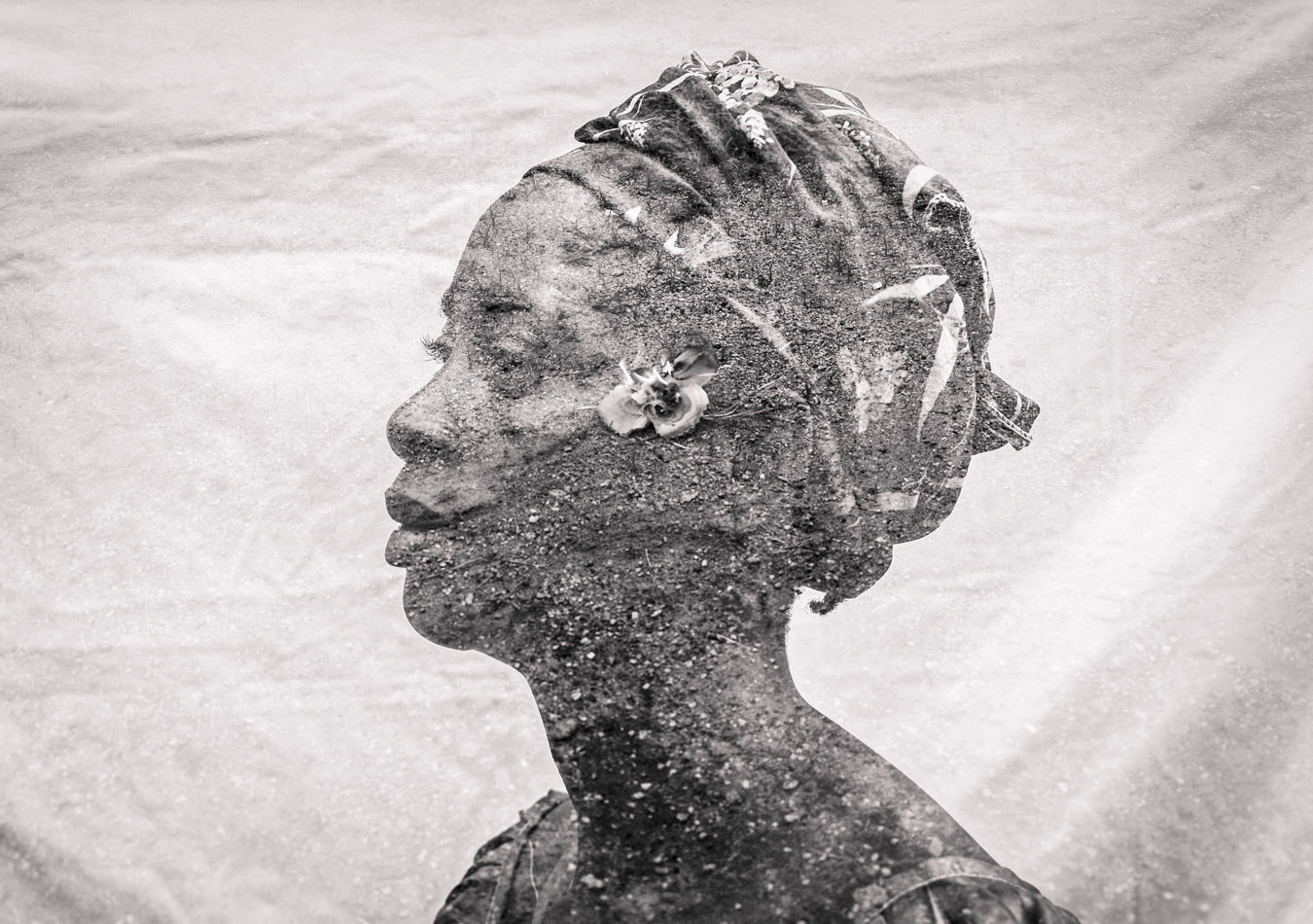
Deborah Danjuma from the series It's All in My Head, 2019
“When my community was attacked by herdsmen in 2017, my family and I fled for safety to a nearby community.
A year after we returned, my husband went to tap palm wine in the bush but did not return. Four days after he went missing, some members of our community searched for him and discovered his lifeless body in the bush.
The men who found him saw some herdsmen close to his corpse.
He was stabbed and left to die.
My husband used to take care of me and our seven children before he died.
Now I have to struggle to provide for my family.
I think of him so much, I miss him everyday.”
Deborah Danjuma, 40, Kaduna, Nigeria.
On the 24th of December 2016, some herdsmen launched an attack in Goska Village in Jema’a LGA, Kaduna State which led to the loss of lives and properties in the area. Despite military presence in the area, there have been silent killings by suspected herdsmen in the community almost on a yearly basis.
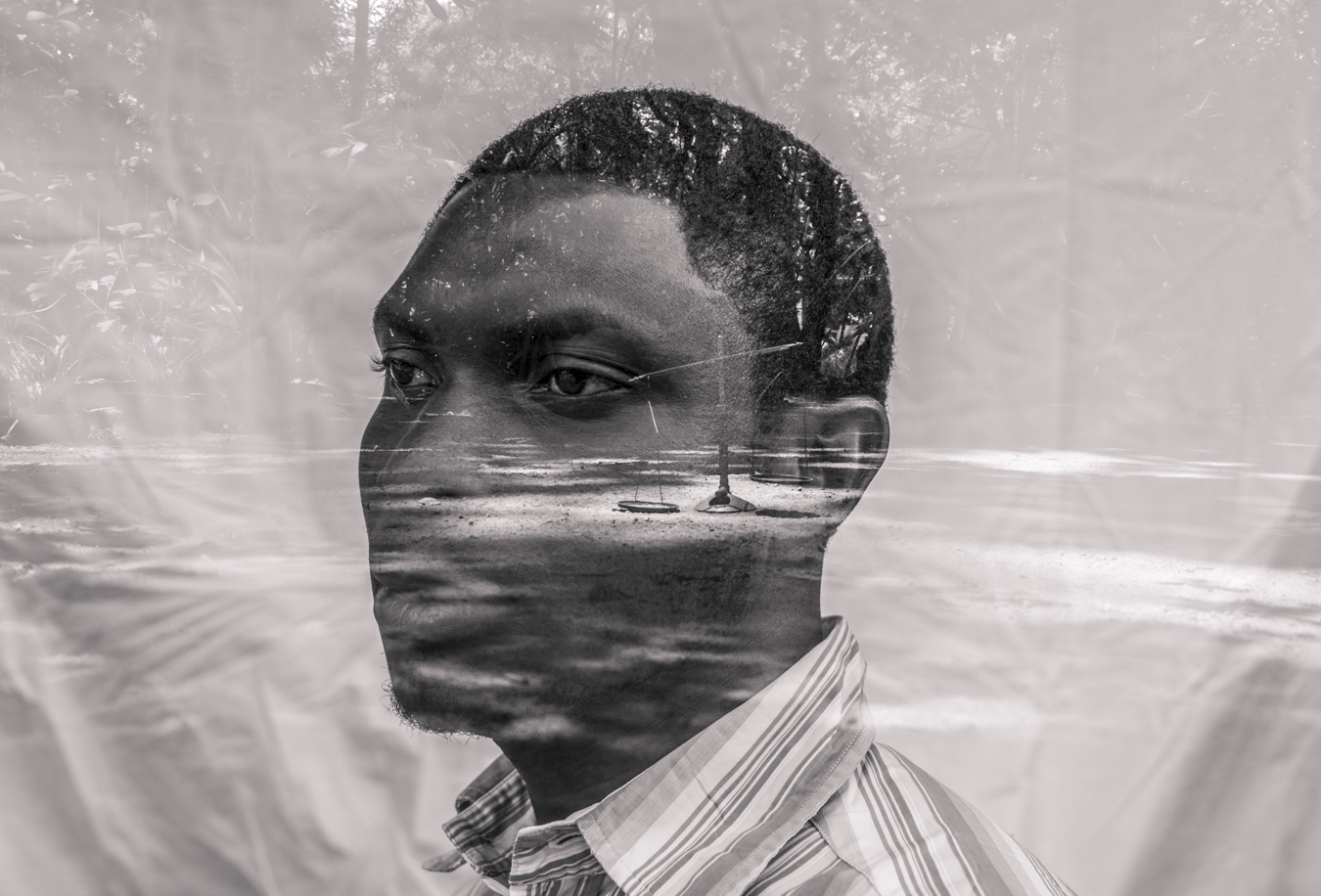
Abdul-Razak Salisu from the series It's All in My Head, 2019
“I was chatting with some friends, then we saw people running from the market. A few minutes later, I saw my mother and my sister crying; they told me that my brother was stabbed in the market. My mom told me he had been rushed to the hospital.
I rushed down to see him. When I got there he was unconscious, we were referred to another hospital.
When we arrived at the second hospital, I was told that he was dead.
The death of my brother hurt me. Among all my siblings, my brother was the closest to me.
I fear that the attackers might strike again because no arrest has been made, justice has not been served.”
Abdul-Razak Salisu, 27, Kaduna, Nigeria
2018 led to the painful renaissance of ethno-religious conflict in Kasuwan Magani, in Kajuru local Government Area of Kaduna state.
Prior to this time, there had been a violent clash in the area as far back as 1980.
While there have been several causes of violent conflicts in the area till date, one of several recurring triggers is ethno-religious differences between the Adara and Hausa people.
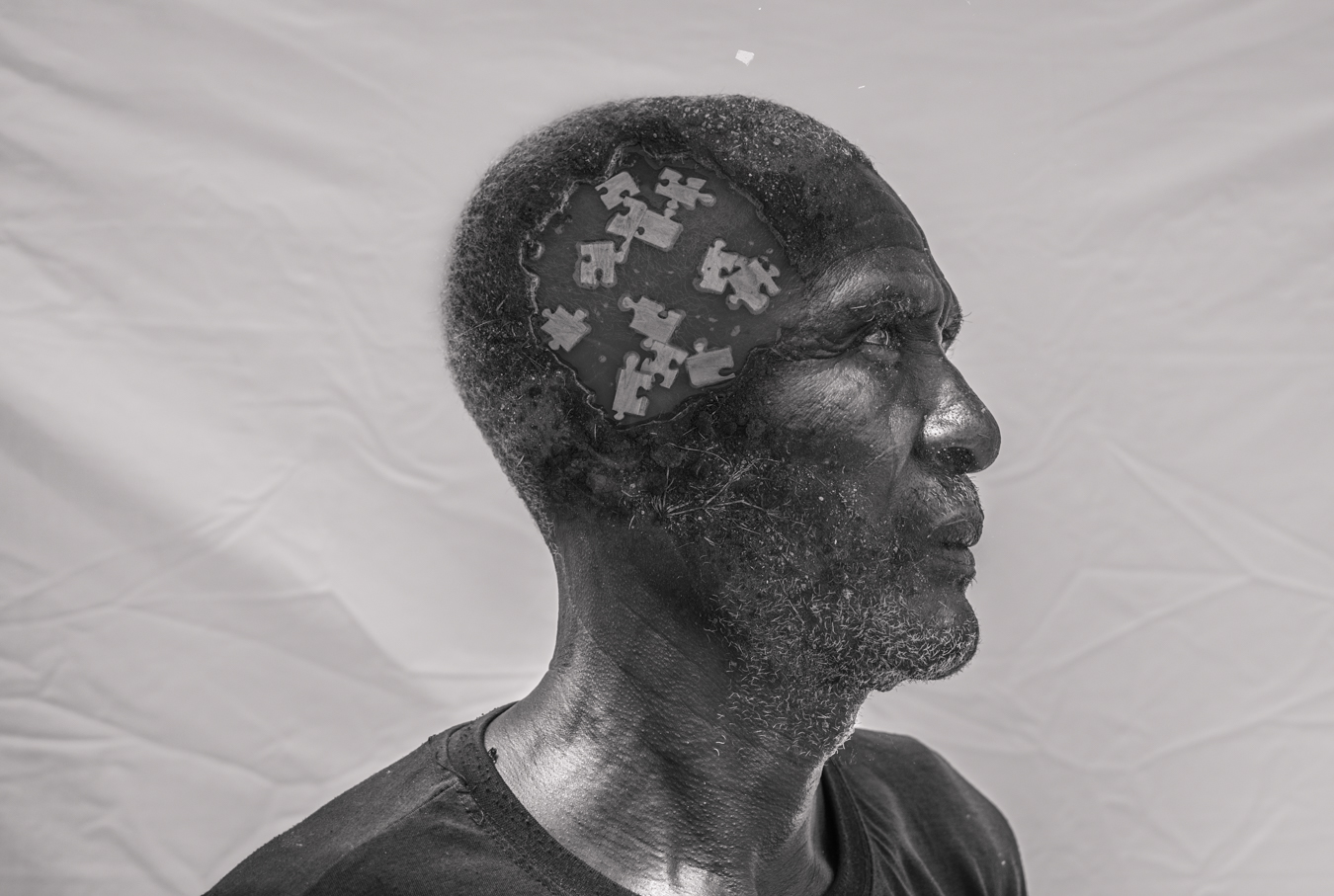
Maruku Jonathan from the series It's All in My Head, 2019
“While resting at home, I got word that my community was under siege. I and my family ran to Mai Lope then to Jalingo.
We returned a year later but all that we left behind was gone.
I’m angry, bitter and unhappy. All that I own was destroyed for no reason. When I think of all I lost, I loose it, you can liken me to a mad man because I have lost all I have worked for.”
Maruku Jonathan, 73, Taraba, Nigeria.
In different parts of Taraba, suspected Herdsmen have violently attacked helpless citizens in a quest to dominate their ancestral land.
At different times in 2018, suspected Herdsmen attacked different communities in Lau local government in Taraba.
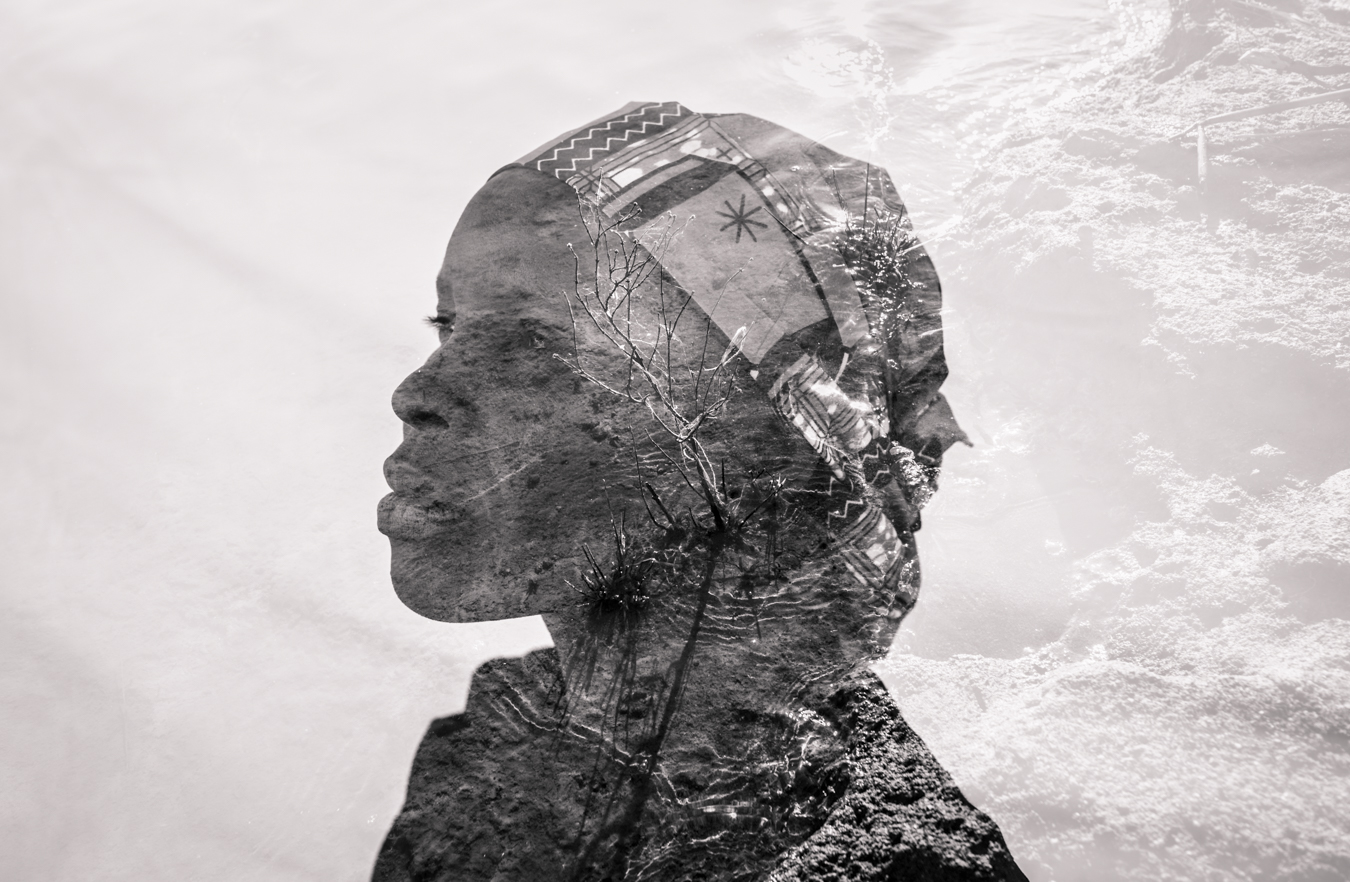
Jamila from the series It's All in My Head, 2020
“My first husband was killed by Boko Haram insurgents. After his demise, things got really hard. I could not take care of myself nor my children. I decided to remarry to ease my burden.
During the first few weeks of our marriage, he was very kind and supportive. After a while, he changed and got physically abusive. He also stopped providing for me and the family.
I assumed that getting married would ease my burden but it turned out worse. Sometimes I wish I had waited a little longer, I was better off as a widow.”
*Jamila, Borno, Nigeria
According to the Nigeria Stability and Reconciliation Programme, approximately 80
million Nigerian women and girls are victims of gender-based violence (GBV).
For the 2020 16 days of Activism Against Gender-Based Violence, the United Nations sexual
and reproductive health agency, UNFPA, collaborated with Etinosa Yvonne on a series that
highlights the psychological effects of gender based violence.
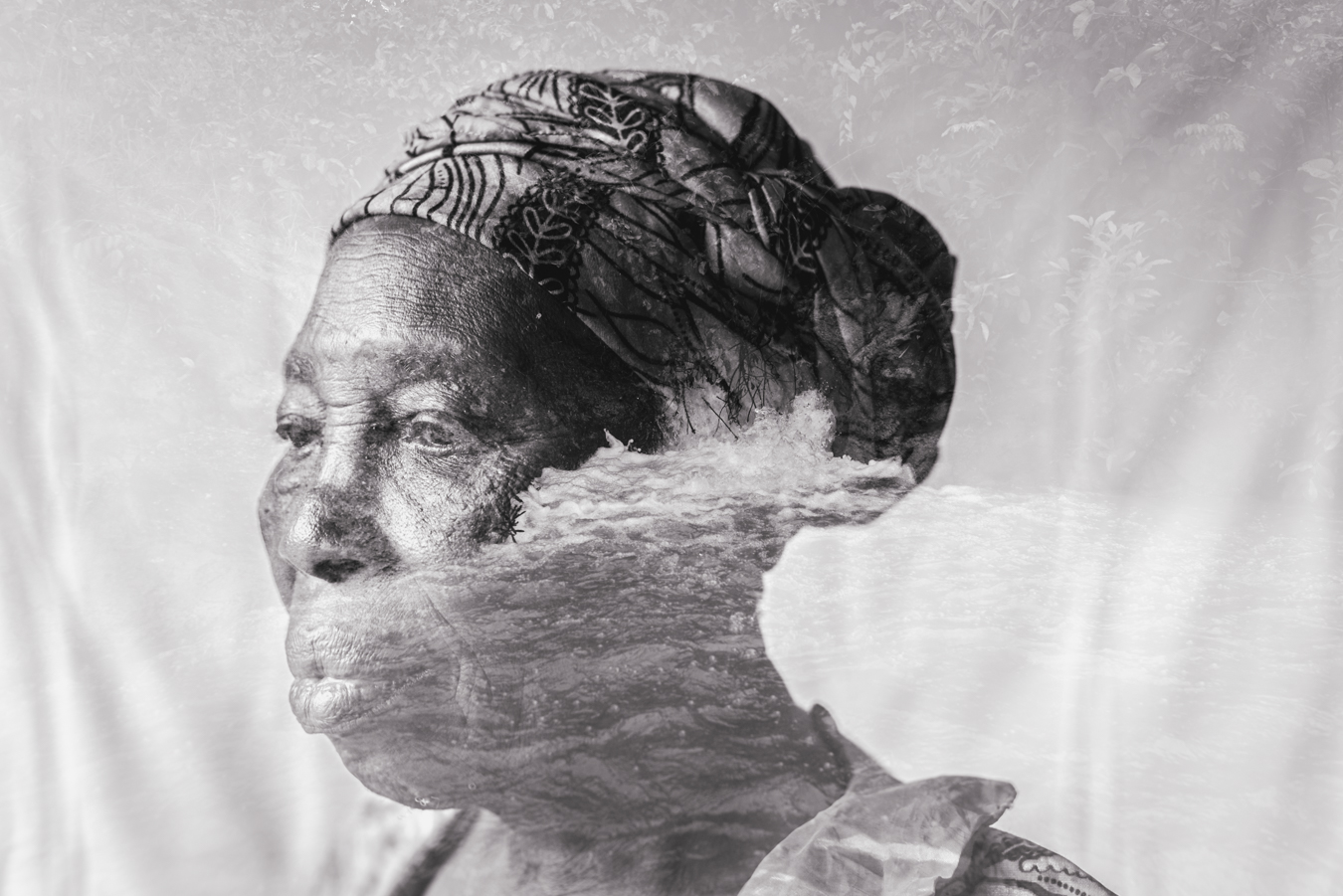
Ukotibono Mbipom from the series It's All in My Head, 2023
“My younger brother had three children; they died at different times. After the death of his last child in 2013, my brother said I was responsible for killing his children through witchcraft. He beat me up and insulted me.
I reported him to our family and then they summoned us for a meeting. During the meeting, my brother claimed that his last child sent a message that I should “set him free”. I told my brother that I was ready to take an oath to prove my innocence. They brought a Bible which I was to swear by. When it was time for me to take the oath, my brother fell on his knees and apologised. When he did that, my family members were upset. They asked him to go and announce in the village that he had lied against me. After that day, my brother stopped talking to me.
In 2015, I went to visit him. I tried to speak to him and tell him that we shouldn’t fight because we are siblings. He pursued me out of his house with a stick.
I feel bad that my brother has stopped talking to me. He is my only sibling who is still alive.
I have forgiven him because of my faith.”
Ukotibono Mbipom, 86, Akwa-Ibom, Nigeria
Witchcraft accusations/hunts happen in different parts of Nigeria on a yearly basis.
Vulnerable people like children and elders are often targeted as well as women.
Research shows that in times past and in recent years, Cross-River and Akwa-Ibom state
have had several cases where innocent people including children and adults are abused,
victimised and tortured based on allegations of witchcraft.
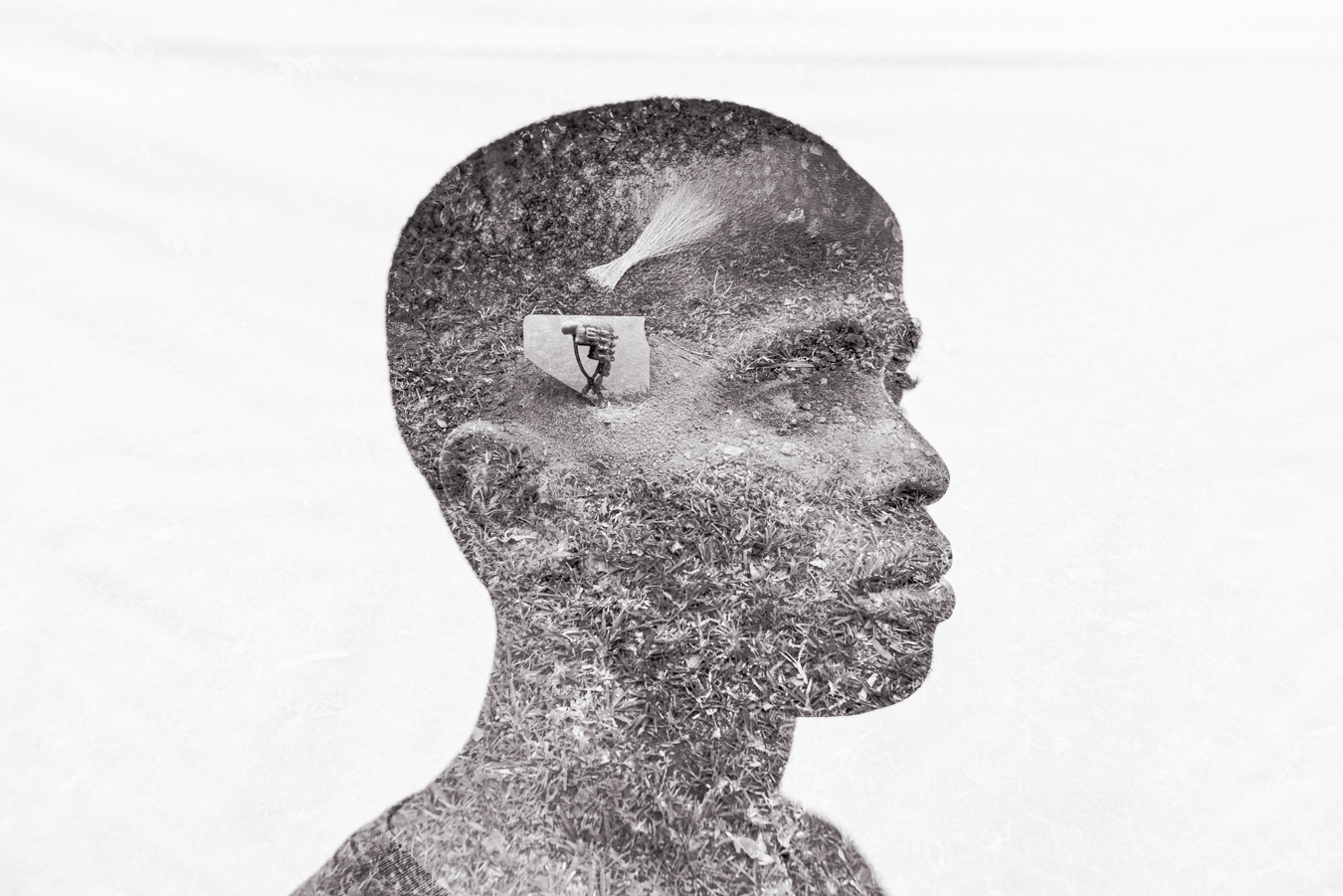
Ime from the series It's All in My Head, 2023
“My mother died when I was five years old. After my mum’s demise, I started living with my Uncle.
Shortly after I moved in, my Uncle’s wife became ill. She asked me how my mother died. She asked if I did anything to her; I was confused. She began to call me a witch but my uncle tried to defend me. She pressured my Uncle to take me for deliverance which he did. After the deliverance program, my Uncle’s wife said that she wasn’t comfortable living with me so my Uncle took me to live with one of his sisters. Shortly after I started living with my aunt, she started calling me a witch. I was beaten, chained, maltreated and tortured. I was forced to describe what a witch looks like. My Uncle took me back to his house but he also began to hit me. When the torture was unbearable, i ran away from the house and began living on the streets. After a while, I returned to my mother’s family house.
Sometime in 2009, my Uncle came to visit me, he said he met a man looking to raise children that are witches. He asked if I would like to stay with the man and assured me that I would be able to eat three times a day. When I heard about the food, I agreed to leave the house.
I have not visited my family since 2011. Sometimes I feel sad when I see other children in the home going to visit their family. I feel like I am not part of any family; my parents are not there for me to visit and see what I have become.
I have grown. I am very intelligent and I believe in myself. In my school, I am seen as a leader. I usually encourage my classmates and let them know that there is nothing they cannot do.
I believe that people who can defend the rights of children are people with lived experience like myself. I hope to become a lawyer and defend people, especially children.”
Ime, 18, Akwa-Ibom, Nigeria
Witchcraft accusations/hunts happen in different parts of Nigeria on a yearly basis.
Vulnerable people like children and elders are often targeted as well as women.
Research shows that in times past and in recent years, Cross-River and Akwa-Ibom state
have had several cases where innocent people including children and adults are abused,
victimised and tortured based on allegations of witchcraft.